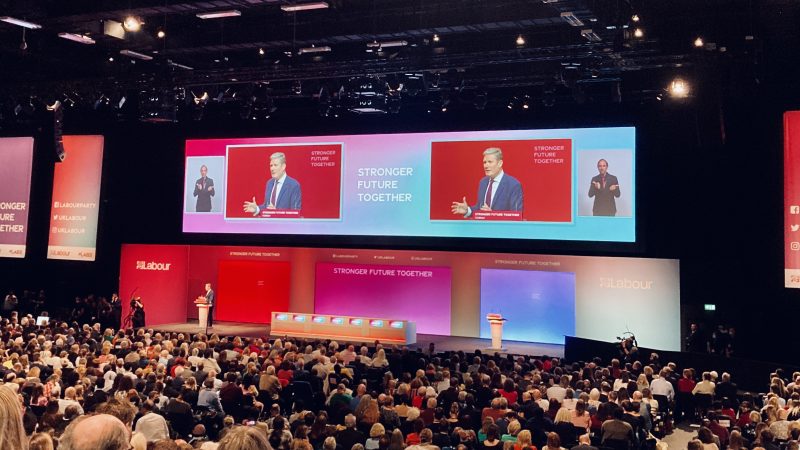
Day three of Labour conference, and attention turns to Keir Starmer’s leader’s speech, scheduled to take place this afternoon. The Labour leader is expected to declare that Labour will “fight the Tories on economic growth”. He will announce that Labour will “turn the UK into a growth superpower” through its ‘green prosperity plan’, which the party has said will create one million new jobs across the country. Starmer will tell conference that this “will require a different way of working – the biggest partnership between government, business and communities this country has ever seen” and that Labour will usher in a “new way of governing” to take the UK “out of this endless cycle of crisis”.
It is plain to see that this has been a quieter conference than in recent years. 2021 saw Andy McDonald’s dramatic resignation from the shadow cabinet, who declared that he “wanted to fight for the working people of this country” and “cannot do this as a member of the shadow cabinet”. And who can forget the shenanigans around the deputy leadership position in 2019.
The 2021 conference also witnessed a surprise rule change victory for Momentum on the selection of parliamentary candidates in snap elections (which the party has been accused of ignoring in subsequent by-elections). There were no upsets for the leadership on rule changes this time round, and the priorities ballot, which decides the topics to be discussed at conference, was dominated by motions proposed by the Starmer-backing Labour to Win group. The passing of motions backing a £15 minimum wage, public ownership of essential services and utilities and MPs appearing on picket lines was welcomed by Momentum, as was the historic vote in favour of Labour introducing proportional representation for general elections. Momentum said the latter result sent Starmer an “unambiguous message” that the “leader alone does not dictate the policy of the party”.
But the party is not bound by policy passed at conference, even if motions are passed unanimously. It is Labour’s national policy forum (NPF) and ‘Clause V’ meeting before an election that decides which parts of the party programme make it into the manifesto. A case in point is the return of calls for a £15 minimum wage at this year’s conference. A motion urging the party to raise the minimum wage to £15 per hour was passed by delegates at last year’s event but has not been adopted as Labour policy (though the party did commit in August to reforming the minimum wage to ensure that it is in line with living costs). This begs the question, then, whether conference is quieter this time round because of a strengthened sense of party unity or because conference itself has been somewhat sidelined as a forum for policy discussion by the leadership.




More from LabourList
Letters to the Editor – week ending 1 March 2026
‘I spent years telling workers the law couldn’t help them – that has changed’
Josh Simons resigns as Cabinet Office minister amid investigation